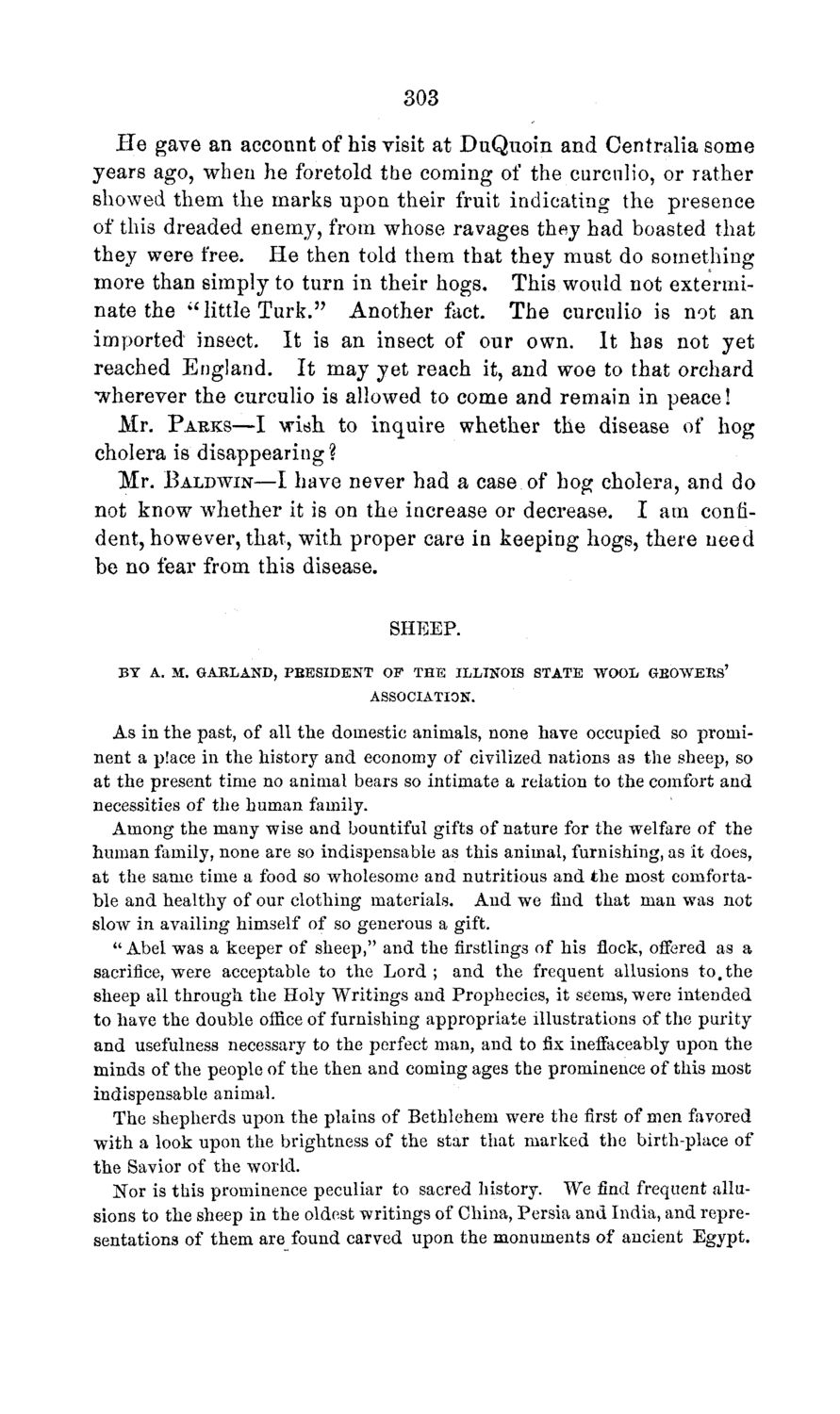| |
| |
Caption: Board of Trustees Minutes - 1869
This is a reduced-resolution page image for fast online browsing.

EXTRACTED TEXT FROM PAGE:
303 H e gave an account of his visit at DuQuoin and Centralia some years ago, when he foretold the coming of the curculio, or rather showed them the marks upon their fruit indicating the presence of this dreaded enemy, from whose ravages they had boasted that they were free. He then told them that they must do something more than simply to turn in their hogs. This would not exterminate the "little Turk." Another fact. The curculio is not an imported insect. It is an insect of our own. It has not yet reached England. It may yet reach it, and woe to that orchard wherever the curculio is allowed to come and remain in peace! Mr. PARKS—I wish to inquire whether the disease of hog cholera is disappearing ? Mr. BALDWIN—I have never had a case of hog cholera, and do not know whether it is on the increase or decrease. I am confident, however, that, with proper care in keeping hogs, there need be no fear from this disease. SHEEP. BY A. M. OAKLAND, PBESIDENT OF THE ILLINOIS STATE WOOL GKOWEBS' ASSOCIATION. As in the past, of all the domestic animals, none have occupied so prominent a place in the history and economy of civilized nations as the sheep, so at the present time no animal bears so intimate a relation to the comfort and necessities of the human family. Among the many wise and bountiful gifts of nature for the welfare of the human family, none are so indispensable as this animal, furnishing, as it does, at the same time a food so wholesome and nutritious and the most comfortable and healthy of our clothing materials. And we find that man was not slow in availing himself of so generous a gift. " Abel was a keeper of sheep," and the firstlings of his flock, offered as a sacrifice, were acceptable to the Lord ; and the frequent allusions to, the sheep all through the Holy Writings and Prophecies, it sterns, were intended to have the double office of furnishing appropriate illustrations of the purity and usefulness necessary to the perfect man, and to fix ineffaceably upon the minds of the people of the then and coming ages the prominence of this most indispensable animal. The shepherds upon the plains of Bethlehem were the first of men favored with a look upon the brightness of the star that marked the birth-place of the Savior of the world. Nor is this prominence peculiar to sacred history. We find frequent allusions to the sheep in the oldest writings of China, Persia and India, and representations of them are found carved upon the monuments of ancient Egypt.
| |